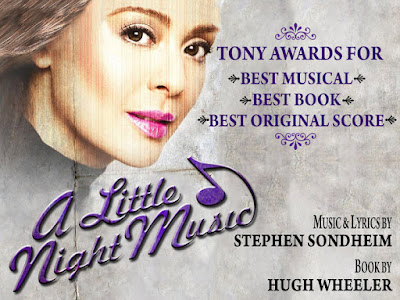We who go forth of nights and see without the slightest discomposure our sister and our wife seized on by a strange man and subjected to violent embraces and canterings round a small-sized apartment – the only apparent excuse for such treatment being that it is done to the sound of music – can scarcely realize the horror which greeted the introduction of this wicked dance.
—In an article in the English magazine, Belgravia, at a time when Waltz was becoming popular
And the characters in Stephen Sondheim’s A Little Night Music are introduced to us dancing the Waltz, exchanging partners, with weariness and hesitation in some of the exchanges, yet with a smile in the others.
We are presented with men and women intertwined in one graceful, shameful and truthful dance, and the link is love, or whatever sensitivity it is that goes between any two people in a romantic relationship. One character is after another character who is after another. Each one is a point in a series of connected triangles. In play are love’s realities and therefore its complexities.
 |
| A Little Night Music poster (Source) |




